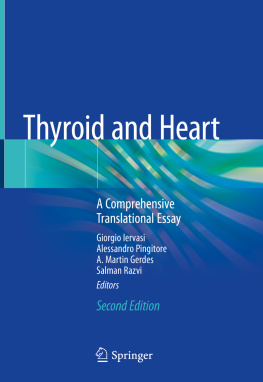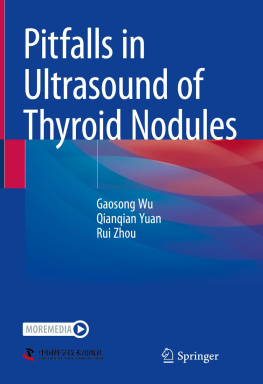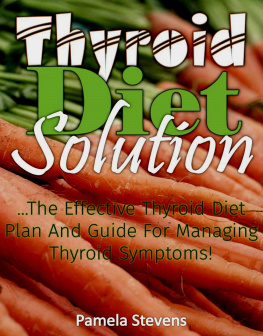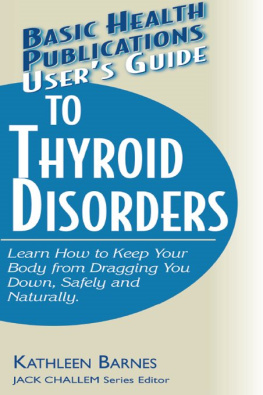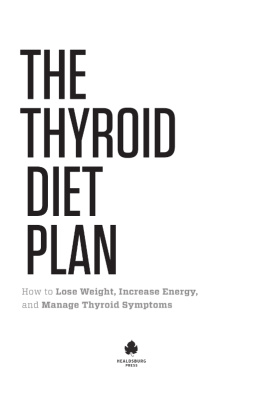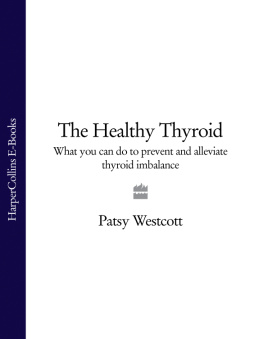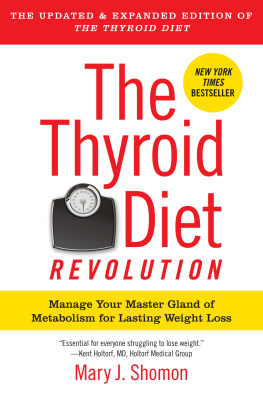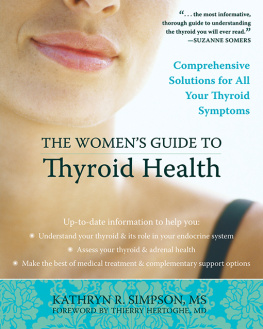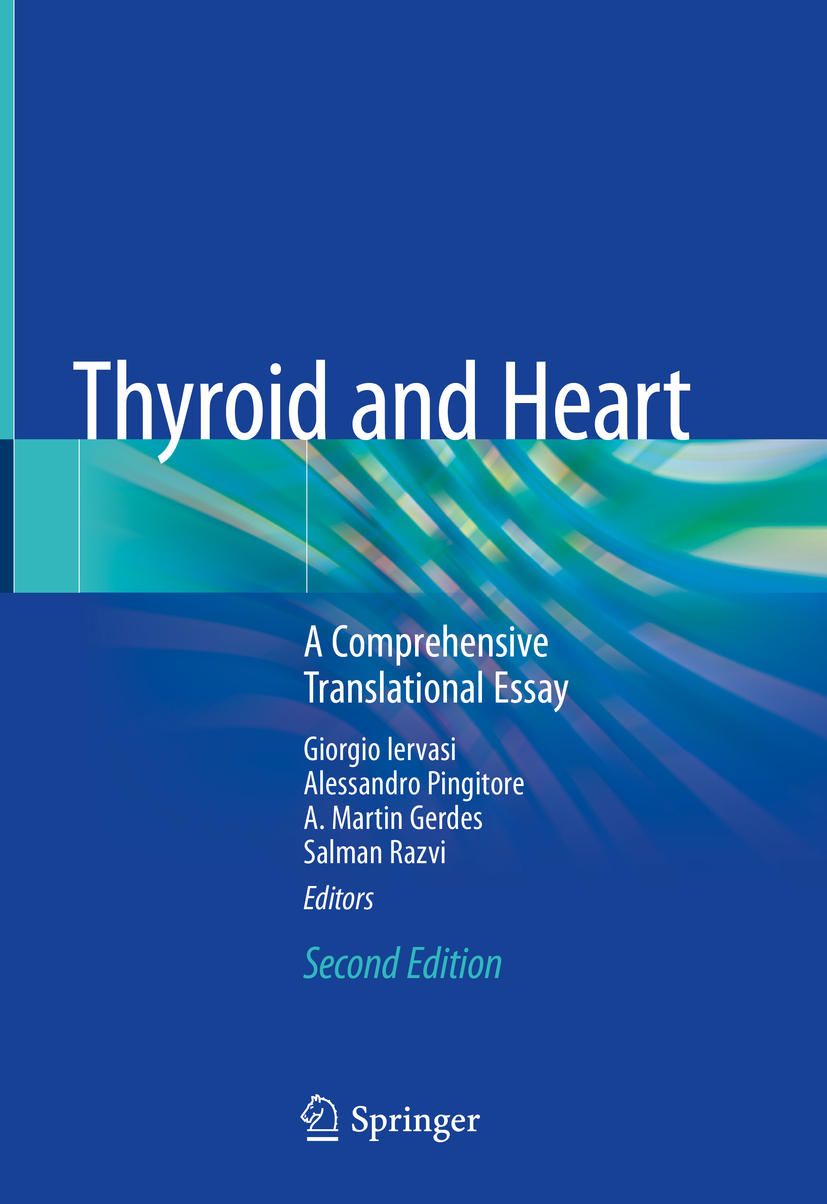Editors
Giorgio Iervasi , Alessandro Pingitore , A. Martin Gerdes and Salman Razvi
Thyroid and Heart
A Comprehensive Translational Essay
2nd ed. 2020
Editors
Giorgio Iervasi
Institute of Clinical Physiology (IFC) National Research Council (CNR), Pisa, Italy
Alessandro Pingitore
Institute of Clinical Physiology (IFC) National Research Council (CNR), Pisa, Italy
A. Martin Gerdes
NYITCOM College of Osteopathic Medicine Biomedical Sciences Department, Old Westbury, NY, USA
Salman Razvi
Institute of Clinical and Translational Medicine, Newcastle University/Queen Elizabeth Hospital, Newcastle upon Tyne, UK
ISBN 978-3-030-36870-8 e-ISBN 978-3-030-36871-5
https://doi.org/10.1007/978-3-030-36871-5
Springer Nature Switzerland AG 2013, 2020
This work is subject to copyright. All rights are reserved by the Publisher, whether the whole or part of the material is concerned, specifically the rights of translation, reprinting, reuse of illustrations, recitation, broadcasting, reproduction on microfilms or in any other physical way, and transmission or information storage and retrieval, electronic adaptation, computer software, or by similar or dissimilar methodology now known or hereafter developed.
The use of general descriptive names, registered names, trademarks, service marks, etc. in this publication does not imply, even in the absence of a specific statement, that such names are exempt from the relevant protective laws and regulations and therefore free for general use.
The publisher, the authors, and the editors are safe to assume that the advice and information in this book are believed to be true and accurate at the date of publication. Neither the publisher nor the authors or the editors give a warranty, expressed or implied, with respect to the material contained herein or for any errors or omissions that may have been made. The publisher remains neutral with regard to jurisdictional claims in published maps and institutional affiliations.
This Springer imprint is published by the registered company Springer Nature Switzerland AG
The registered company address is: Gewerbestrasse 11, 6330 Cham, Switzerland
Foreword
Thyroid disease and cardiovascular disorders are both very common in the general population. The close relationship between the cardiovascular system and the hypothalamus-pituitary-thyroid axis is already well-known for several decades. The successful previous edition of this book, entitledThyroid and Heart Failure: From Pathophysiology to Clinicswas published 10 years ago. Since then, several major breakthroughs unraveling this complex interplay have been made, thereby expanding our pathophysiological and clinical knowledge and opening a new area for therapeutic interventions.
Therefore this book,Thyroid and Heartcomes at the right time. Not only have the editors updated the book with current state-of-the-art evidence, but they also included novel relevant topics that have emerged in the last 10 years. In order to do so, they received help from a large set of world-leading experts in the field.
The book starts with a historical background and the basic mechanisms underlying thyroid hormone action in the developing and mature heart in Chap.discusses the current evidence and future perspectives of the potential role of thyroid hormone (and its analogs) for the treatment of cardiovascular disease.
There are no other textbooks currently available on this topic that have a similar multidisciplinary perspective. The book is easy to read and offers an excellent overview of the clinical, pathophysiological, and basic science aspects of the interaction of the thyroid and the heart. Altogether, the editors ofThyroid and Hearthave done a great job with this updated book which provides important novel mechanistic insights for both clinicians and experimental scientists and will therefore be of great interest to a large audience of readers.
Robin Peeters
Foreword: Thyroid and the Heart: A Roadmap
Although the seminal work of Parry CH. (Elements of Pathology and Therapeutics, Being the Outlines of a Work. Bath, England: R. Cruttwell, 1815) and the original description of Graves disease were reported in the eighteenth century, the awareness of the scientific community to the strong and dangerous liaison existing between thyroid and the heart dates back to the 1980s, when a few pioneering studies reported that even minimal abnormalities of thyroid function (such as subclinical hypothyroidism or hyperthyroidism, and low triiodothyronine syndrome) were associated with increased cardiovascular morbidity and mortality. It has been proven for decades that the action of thyroid hormones is carried out in a pleiotropic manner on a large number of organs and tissues, and specifically, thyroid hormone receptors are present on the endothelial and myocardial tissues. Therefore, checking for thyroid hormone abnormalities is nowadays routinely performed by cardiologists, due to the dismal effect of such abnormalities if left untreated, and also because results of preliminary randomized controlled trials employing thyroid hormone replacement therapy suggesting a degree of safety and efficacy. Thyroid hormone abnormalities play an even more relevant role when placed in the framework of multiple anabolic deficits in heart failure with the intriguing possibility to implement a therapeutic replacement regimen consisting of multiple hormones.
From a cardiologists perspective, as recently pointed out by an ad hoc working group created by the NHBLI with the goal of developing priorities for future scientific research relating thyroid dysfunction to the progression of cardiovascular disease, the fundamental areas of interest in this exciting field include: investigations into the biology relating thyroid dysfunction to the development of cardiovascular disease and into the identification of novel biomarkers of thyroid hormone action in cardiovascular tissues; studies that define subgroups of patients with thyroid dysfunction amenable to specific preventive strategies and interventional therapies related to cardiovascular disease; and clinical trials focused on improvement in cardiovascular performance and cardiovascular outcomes through treatment with thyroid hormones or thyromimetic drugs. All such topics are covered by the current essay, timely edited byPingitore and Iervasi, that draws a roadmap of the important existing relationship between THYROID AND HEART, and consequently, is very likely to grant a remarkable benefit to the medical community.Thyroid hormones play a central role in the development of the cardiovascular system during fetal life, as outlined byRutigliano Gin her appraisal. Genetics do also matter with regard to the regulation of thyroid function and cardiovascular risk factors, as pointed out byKu and coworkersin their chapter. Among cardiovascular risk factors, the role of thyroid hormones in blood pressure control is remarkable, and accordingly this topic is extensively addressed in the chapter written byJabbar and Razvi. Subclinical hypothyroidism must nowadays be considered a major cardiovascular risk factor, bearing in mind its clear association with diastolic dysfunction, lipid abnormalities, and especially the increased cardiovascular mortality, as documented by

